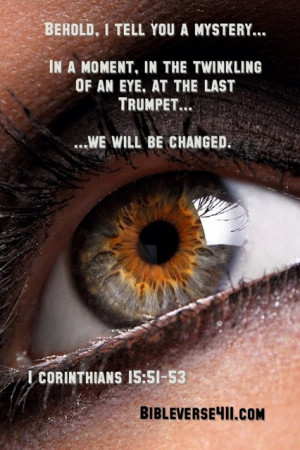

This is how we ended up misconstruing Jeremiah 29:11 and Philippians 4:13. It often never helps to take one single verse and never read it without surrounding chapters for context. If someone took out your eye (literally) you would, in Old Testament culture, bring them to a court of law to receive fair compensation for the pain they inflicted.īut let’s take a look at the verse in context to better understand what it means. In other words, they did not want someone to carry out the punishment literally. “An eye for an eye” was thus intended to be a guiding ethic for legislators and judges it was not meant to advocate personal vengeance.” According to this Crosswalk article, “For both passages, the phrase is used in the circumstance of a court case before a civil authority such as a judge.

That if someone harms you in a certain way, they receive a punishment to repay for the damages.įirst, we have to examine what this means when the Old Testament writers included it. In many Middle Eastern cultures (and some lands beyond) during the Old and New Testament, people operated off of a Karma-esque principle.
Eye for an eye scripture code#
Or at least, archeological evidence can trace nothing further back than the Code of Hammurabi. The phrase actually originates in the Mesopotamian Empire under Hammurabi. In other words, if someone wrongs you in the sight of the law, justice needs to be served and consequences often occur. Where Does the Phrase Eye for an Eye Come From?Īccording to John Gill’s commentary, retribution law existed long before the phrase “eye for an eye” occurs in the Old Testament. So where did this concept of an eye for an eye come from? Does God actually mean for his people to seek revenge and then later changes his mind? Or have we been seeing (buh dum tssh) this the wrong way? Let’s dive into the meaning of this phrase found in Exodus 21:24. And if they don’t, it probably was not caused by wronging another believer.

At least, most Christians appear to have their eyes in their forehead. Jesus’ “good eye” teaches that generosity to the needy brings light to our lives, makes a deposit in heaven, and demonstrates that God is our master.But wait. They think Jesus was talking about tithing (he wasn’t!), and they read the passage on worry without noticing its connection to the command to be generous. Jesus transforms almsgiving: generosity should be secret, so that it is for God, not humans (6:2-4) generosity is like making a deposit in heaven (6:19-21) generosity lights up our whole lives (6:22-23) we must choose God as master, not money (6:24) and we must avoid worry so that we can be generous (6:25-34).įor some reason, people often overlook this key theme of generosity in Matthew 6. It interacts with and informs Jesus’ teaching in Matthew 6 about the giving of alms (a key act of piety in first-century Judaism). So Jesus’ saying is an invitation to choose generosity over stinginess. A parallel idiom is found in the Old Testament: “He who is generous (Hebrew tov ayin, good eye) will be blessed, for he gives some of his food to the poor” (Proverbs 22:9 see also 11:25). The haplos word group is used to refer to generosity several times in the New Testament (Romans 12:8, 2 Corinthians 8:2, 9:11, 9:13, James 1:5). Although haplos (and its cognate forms, haplous and haplotetos) can also refer to singleness or simplicity, neither of those meanings makes as much sense in this context. In contrast, “good eye” (Greek ophthalmos haplos) refers to generosity. The Law commands the person with wealth not to have an “evil eye” and thus withhold help from a needy brother (Deuteronomy 15:9). The Old Testament warns against the man with an “evil eye” (Hebrew raa ayin), who is selfish and greedy (Proverbs 23:6, 28:22).
Eye for an eye scripture full#
Jesus later uses the phrase to describe the laborers in the vineyard who begrudge full pay to those who work less (Matthew 20:15). The evidence is good that “evil eye” (Greek ophthalmos poneros) refers to stinginess or greediness. More importantly, once the passage is understood clearly, it illuminates a key kingdom principle.įirst, we need to look at the two key phrases that make Jesus’ saying so mysterious. It’s an interesting saying to study, because it requires us to look carefully at the context, at the Old Testament background, and at some unusual Greek and Hebrew idioms. Students often ask me about a saying from Jesus’ Sermon on the Mount: “… if your eye is good, your whole body will be full of light but if your eye is bad, your whole body will be full of darkness” (Matthew 6:22-23).


 0 kommentar(er)
0 kommentar(er)
